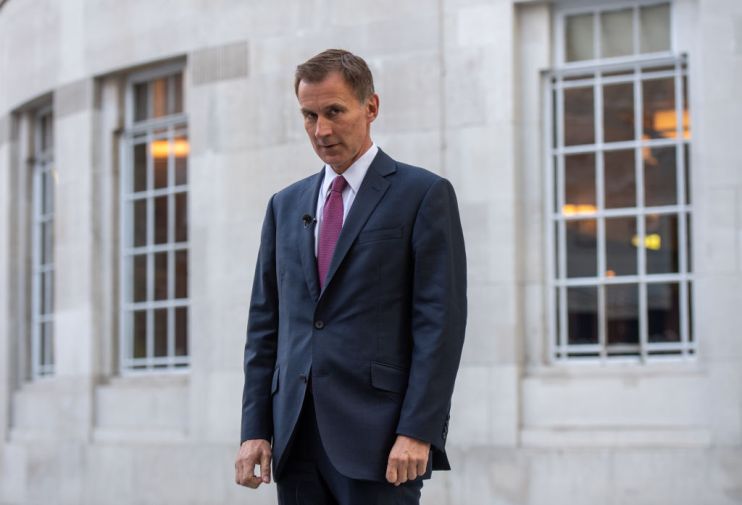OBR and Hunt fail to see eye-to-eye on the UK’s fiscal position

Listening to Jeremy Hunt deliver the Autumn Statement, you would be forgiven for thinking the UK’s public finances were in rude health.
Thanks to months of prudence, the nation’s fiscal position had decisively turned a corner, Hunt said, allowing him to unveil the meaty tax cuts desperately wanted by T̶o̶r̶y̶ b̶a̶c̶k̶b̶e̶n̶c̶h̶e̶r̶s̶ the country.
“Because of the difficult decisions we have taken in the last year,” he cooed, “borrowing will be lower than forecast in the Spring, debt as a proportion of GDP will be lower than forecast… our fiscal headroom has doubled”.
But the Office for Budget Responsibility (OBR) may feel their forecasts, on which he relied, were slightly misrepresented by the Chancellor.
Speaking to reporters after the Autumn Statement was delivered, Richard Hughes, chair of the OBR, chose to focus on something that went unmentioned in the Chancellor’s fiscal set-piece.
“It’s worth dwelling for a moment on something that Chancellor didn’t announce in his Autumn Statement, which is any major change to departmental spending plans despite significantly higher inflation,” he said.
Detailed spending plans on government departments only extend until 2024-25. More detailed plans will have to wait until after the next election.
In the meantime, the OBR is reliant on plans that suggest capital investment will remain constant in cash terms despite the increase in inflation.
Over the forecast period, this amounts to a real terms spending cut of around £19bn. Only thanks to this omission was Hunt able to deliver his tax cuts.
Hughes pointed out that “eagle eyed” observers would recognise that the savings from lower spending was “roughly equal” to what he spent on his two big tax cuts.
“Had he sought to preserve the real spending power of public services in the face of higher inflation over the next five years, that would have left him relatively little to spend on other measures in this fiscal event,” Hughes said.
The OBR said that departmental spending plans were “a significant and growing risk to our forecast”.
And that’s not the only way in which the fiscal position is not as secure as Hunt made out.
Take Hunt’s headroom. Even after announcing substantial tax cuts for both businesses and households, Hunt’s headroom to meet his key fiscal target of having debt fall as a proportion of GDP had doubled.
Champagne all round?
Not quite. Hughes said: “All of this improvement comes from the rolling nature of the rule, giving him a further year to meet it, rather than from any substantive improvement in the fiscal position.” Ouch.
In fact, if the target had not rolled forward an extra year, which gives the tax burden more time to rise and real spending more time to fall, he would have scraped by with only £1.6bn in headroom.
All of this makes the fiscal position look more than a little worrying.